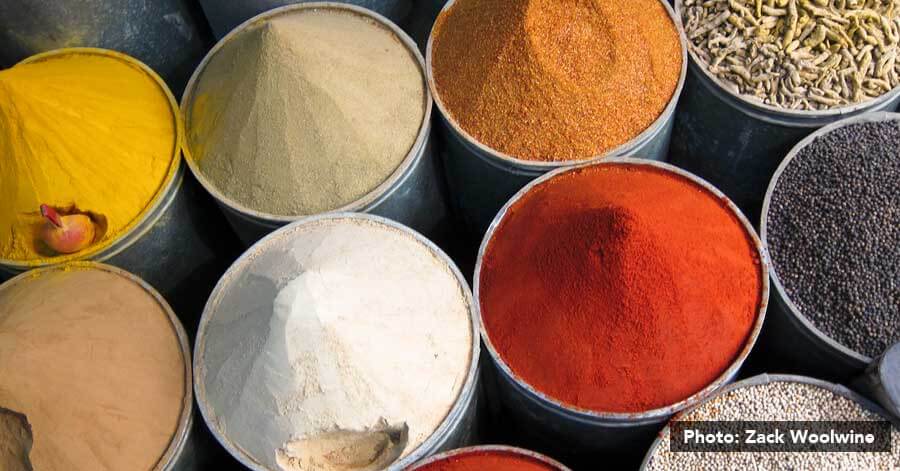
Moroccan food is known for its rich, aromatic flavors, but it’s not necessarily “spicy” in the sense of being hot. Instead, Moroccan cuisine is characterized by its complex blend of spices, which create depth and warmth rather than intense heat. Here’s how Moroccan food achieves its distinctive flavor profile:
1. Spice Blends:
- Ras el Hanout: This is a quintessential Moroccan spice blend that can contain 10 to 30 different spices. It often includes spices like cumin, coriander, cinnamon, ginger, and cloves. The blend varies from region to region and shop to shop, creating a unique flavor for each batch.
- Harissa: A spicy chili paste made from roasted red peppers, garlic, and various spices. Harissa adds heat and depth to Moroccan dishes, particularly those involving meats and vegetables.
2. Individual Spices:
- Cumin: A common spice in Moroccan cuisine that adds earthy warmth.
- Paprika: Adds a mild sweetness and can sometimes be smoked for additional flavor.
- Cinnamon: Often used in savory dishes, it adds warmth and complexity.
- Ginger and Turmeric: Contribute to the earthy and aromatic notes in Moroccan dishes.
- Black Pepper: Adds a bit of heat and pungency.
3. Chili Peppers:
- Fresh Chilies: Used in some Moroccan dishes, particularly in sauces and stews, to add a moderate level of heat.
- Chili Powders: Sometimes used to add both heat and color to dishes.
4. Cooking Techniques:
- Slow Cooking: Dishes like tagines are cooked slowly, allowing the spices to meld and develop deep, complex flavors. This method intensifies the flavors without necessarily making the dish extremely hot.
5. Herbs:
- Cilantro and Parsley: Fresh herbs are used generously in Moroccan cuisine, adding freshness and balancing the spices.
6. Fermented Ingredients:
- Preserved Lemons: While not spicy, preserved lemons add a salty and tangy flavor that enhances the overall taste profile of Moroccan dishes.
7. Sweet and Savory Combinations:
- Moroccan cuisine often combines sweet ingredients like dried fruits (e.g., apricots, raisins) with savory spices, creating a complex flavor profile that can balance out spiciness.
In summary, Moroccan food is more about a balanced mix of spices rather than intense heat. The combination of aromatic spices, spice blends, and cooking techniques creates a flavorful and aromatic cuisine that might be mildly spicy but is primarily known for its depth and richness.
Was this helpful?
0 / 0







